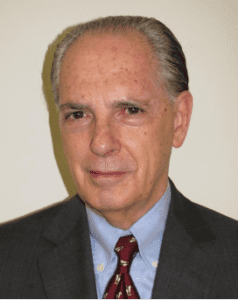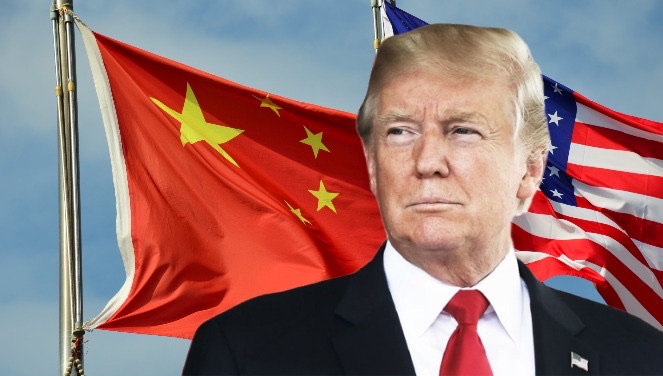By Alfredo Toro Hardy
According to the classical definition by Antonio Gramsci the essence of hegemony entails the capacity to define the terms of a shared agenda. This, by its own nature, implies the recognition by others to a given position of leadership and the incorporation of their own interests within such an agenda. (Fogacs, 2001).

Andrew Gamble explains it as follows: “The (…) understanding of hegemony is associated with Gramsci. The exercise of power entails the use of both coercion and consent, but the most stable policies are those where consent is prominent. The focus is (…) on the way in which power is accepted as legitimate through ideological and cultural persuasion.
The emphasis is on how a particular conception of world order is created and sustained through a myriad of agencies and organizations, and the incorporation of many different interests into an overreaching political project”. (Gamble, 2002, p. 130).
Dismantling the Most Successful Hegemonic System Ever
After World War II, and in the final stage of that conflict, the United States gave shape to the most successful hegemonic system that ever existed. This, through the creation of a wide web of international institutions, systems of alliances, and a rules-based liberal order. Overcoming multiple and serious challenges, this system has been able to survive for eight decades. The key to its success was pursuing a shared agenda and incorporating the interests of other actors within the system. Moreover, the fact that the United States was able to show self-restraint in relation to its superpower status in relation to other members of the system, was fundamental for legitimizing it in their eyes.
These last few years a revisionist axis that aims at disrupting America’s led hegemony has materialized. Within its main protagonists are China, Russia, North Korea and Iran. The main characteristics of this axis are the authoritarian nature of their regimes, and the ambition of expanding their countries’ landmass and spheres of influence.
Ironically, what the revisionist powers have been unable to attain -taking down the American hegemonic system- is happening thanks to the actions of a U.S. President. Not only Donald Trump’s international mindset is clearly revisionist in nature, and his vision of Putin that of a natural ally, but he seems keen in attaining a grand bargain with China as well. As a result, the United States is not only abandoning the international order that it has commanded for eighty years but, at the same time, it’s moving into the revisionist camp.
According to Hal Brands: “Trump certainly lacks admiration for the liberal order’s achievements (…) His ‘America first’ agenda holds that the world’s mightiest power has been systematically exploited by the system it created and that a country that has long shouldered unique global burdens has no obligation to pursue anything but its own self-interest, narrowly construed”. (Brands, 2025). Two notions seem to conform the MAGA foreign policy vision: The Gulliver one and the sucker one. As a Gulliver tied by hundreds of Lilliputians’ ropes, the United States has been unable to fully exert its superior power. As a sucker, it has paid and underwitted the costs of the liberal order. Time has arrived for imposing new rules of the game, which are nonother that those of the Melian Dialogue: Might makes right.
David French explains the terms of might becoming the leading consideration of America’s foreign policy: “There is an old foreign policy term for this new Trump approach: spheres of influence. Under this theory of foreign relations, each great power has its zone of dominance. Think, for example of the Warsaw Pact in the Cold War – the countries in the pact were nominally independent, but if they exercised actual independence will, they’d soon see Soviet tanks in their streets”. (French, 2025).
But, would this be enough for Trump? According to Ezra Klein “Trump fundamentally wants the landmass of America to be larger when he leaves office”. (Klein, 2025). Meaning, spheres of influence may be good, but not good enough. He actually wants to physically expand America’s territory. He wants the Panama Canal back. He wants to annex Greenland. He even wants to seize control of Gaza, like some sort of twentieth first century’s Hawaii or Guam. And of course, he wants the icing on the cake: Canada becoming America’s 51st state. This, as he said to Trudeau in their February phone call, by making that “the artificial line of separation drawn many years ago will finally disappear”. Indeed, as reported, “he [Trump] did not believe that the border treaty between the two nations was valid”. (Stevis-Gridneff, 2025).
Of course, siding with the revisionist camp in pursuit of an imperial agenda, implies giving free reign to China and Russia to also carve unmolested their own imperial spaces and spheres of influence. Like the Roman Republic’s triumvirs, the three great powers of the day would be able to divide the world among themselves.
Most probably, though, China would restrain itself to just asserting sovereignty over long-contested territories: Mainly, Taiwan, the South China Sea and perhaps the Diaoyu islands. This, while holding back to just economic spheres of influence. The reason for that being that China seeks to increase its influence in the kind of institutions that the Trump camp dismisses, while consolidating its own hegemonic space. As a result, preserving as much of its international credibility as possible, matters.
Consolidating its Hegemonic Space
According to Richard Hass: “Chinese leaders (…) have organized their diplomacy to seek to break out an American-led ‘encirclement’. To do so, they have advanced initiatives to center its country in the international system and to de-center the United States (…) Beijing has been advancing three interwoven initiatives that have become the cornerstone of its foreign policy over the past two years – the Global Development Initiative, the Global Security Initiative, and the Global Civilization Initiative. These initiatives appear regularly in speeches and readouts of meetings involving Chinese officials”. (Hass, 2023).
The first of these initiatives, that of global development, aims at contrasting the unequal distribution of benefits that characterizes Western backed development projects, with the inclusiveness and balanced nature of the Chinese ones. (Hass, 2023). The Global Security one, on its part, pursues harmonious solutions to differences between countries through dialogue and consultation. Its final objective would be to build a security architecture, both at regional and global scales, where China could act as an honest arbiter and as a guarantor of processes of peace and stability. This initiative aims at establishing a post-Western multipolar order. (Chaziza, 2023). The Global Civilization Initiative, finally, promotes dialogue, cooperation and interchange between different civilizations, having as its starting point the recognition of a heterogeneity of cultures and a multiplicity of identities. This vision is presented as an alternative to a Western defined universalism. (Hoon and Chan, 2023).
On top, China’s leaders seek an “Asia-Pacific seamlessly integrated through Chinese-powered trade, technology, infrastructure and shared cultural and civilizational ties. Xi has been particularly successful in cementing China’s position as the regional economic leader”. (Economy, 2022). This materializes through an array of China’s led economic multilateral institutions such as the Regional Comprehensive Economic Partnership or the Asian Infrastructure Investment Bank. On a broader scale, the One Belt, One Road Initiative, which comprises a land route (Silk Road Economic Belt) and a maritime route (Maritime Silk Road), seeks building highways, railways, pipelines, ports, industrial ports, and so on, in Asia, Europe, Africa and Latin America. And, of course, the BRICS, where China is on top, promotes the economic growth, development and cooperation of its members, while aiming at reforming the international financial system to better reflect the interests of emerging economies.
Lucky China
In sum, while the United States tarnishes its image, trashes the good will and the credibility that it enjoys, and strips its hegemonic-led system of its ordering arrangements, Beijing is in the process of crafting an alternative hegemonic system. One, under its stewardship. As a result, while Trump’s foreign policy represents an anachronistic time jump that presents predatory presidents such as James Polk or William McKinley as role models, China aims at attaining the capacity to define the terms of a global shared agenda. By unilaterally shedding itself of its main source of strength, the United States is transferring in a silver plate its leading global position to China. Lucky China, indeed.
References:
Brands, Hal (2025). “The Renegade Order”. Foreign Affairs. February 25.
Chaziza, Mordechai (2023). “The Global Security Initiative: China’s New Security Architecture for the Gulf”. The Diplomat. May 5.
Economy, Elizabeth (2022). “Xi Jinping’s New World Order”. Foreign Affairs. January/February.
Fogacs, David (2001). Antonio Gramsci Readership. London: Lawrence & Wishart.
French, David (2025). “Canada, May I Introduce You to Ukraine?”. The New York Times, March 23.
Gamble, Andrew (2002). “Hegemony and Decline: Britain and the United States” in Patrick Karl O’Brien and Armand Clesse, Editors, Two Hegemonies. Burlington: Ashgate Publishing Company.
Hass, Richard (2023). “China’s Response to American-led ‘Containment and Suppression’”. China Leadership Monitor. Fall, Issue 77.
Hoon, Chang-Yau and Chan, Ying-Kit (2023). “Reflections on China’s Latest Civilization Agenda”, Fulcrum, 4 September.
Klein, Ezra (2025). “The Dark Heart of Trump’s Foreign Policy”. The New York Times. March 1.
Stevis-Gridneff, Martina (2025). “Trump Intensifies Statehood Threats in Attack on Canada”. The New York Times, March 11.
Author: Alfredo Toro Hardy, PhD – Retired Venezuelan career diplomat, scholar and author. Former Ambassador to the U.S., U.K., Spain, Brazil, Ireland, Chile and Singapore. Author or co-author of thirty-six books on international affairs. Former Fulbright Scholar and Visiting Professor at Princeton and Brasilia universities. He is an Honorary Fellow of the Geneva School of Diplomacy and International Relations and a member of the Review Panel of the Rockefeller Foundation Bellagio Center.
(The opinions expressed in this article are solely those of the author and do not necessarily reflect the views of World Geostrategic Insights).







